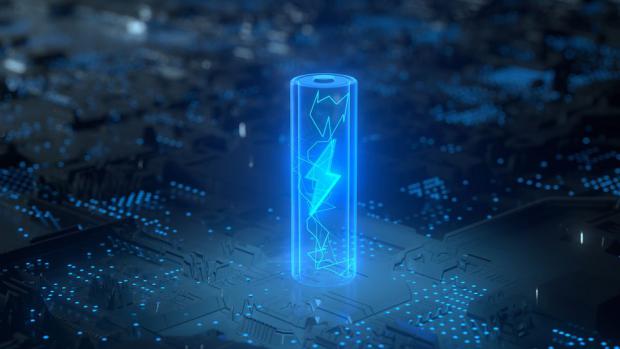
Breaking News
 Trump, Treason, and the New York Times
Trump, Treason, and the New York Times
 Democrat idiocy at work in San Francisco
Democrat idiocy at work in San Francisco
 BREAKING THROUGH Tesla AI in 2026
BREAKING THROUGH Tesla AI in 2026
Who Was The Biggest Antisemite In 2025?
Top Tech News
 Laser weapons go mobile on US Army small vehicles
Laser weapons go mobile on US Army small vehicles
 EngineAI T800: Born to Disrupt! #EngineAI #robotics #newtechnology #newproduct
EngineAI T800: Born to Disrupt! #EngineAI #robotics #newtechnology #newproduct
 This Silicon Anode Breakthrough Could Mark A Turning Point For EV Batteries [Update]
This Silicon Anode Breakthrough Could Mark A Turning Point For EV Batteries [Update]
 Travel gadget promises to dry and iron your clothes – totally hands-free
Travel gadget promises to dry and iron your clothes – totally hands-free
 Perfect Aircrete, Kitchen Ingredients.
Perfect Aircrete, Kitchen Ingredients.
 Futuristic pixel-raising display lets you feel what's onscreen
Futuristic pixel-raising display lets you feel what's onscreen
 Cutting-Edge Facility Generates Pure Water and Hydrogen Fuel from Seawater for Mere Pennies
Cutting-Edge Facility Generates Pure Water and Hydrogen Fuel from Seawater for Mere Pennies
 This tiny dev board is packed with features for ambitious makers
This tiny dev board is packed with features for ambitious makers
 Scientists Discover Gel to Regrow Tooth Enamel
Scientists Discover Gel to Regrow Tooth Enamel
 Vitamin C and Dandelion Root Killing Cancer Cells -- as Former CDC Director Calls for COVID-19...
Vitamin C and Dandelion Root Killing Cancer Cells -- as Former CDC Director Calls for COVID-19...
The Battery That Will Finally Unlock Massless Energy Storage

In groundbreaking research, scientists have made a structural battery 10 times better than in any previous experiment.
What's a structural battery, and why is it such a big deal? The term refers to an energy storage device that can also bear weight as part of a structure—like if the studs in your home were all batteries, or if an electric fence also held up a wall.
In the paper, researchers from Chalmers University of Technology and KTH Royal Institute of Technology in Sweden reveal how their "massless" structural battery works.
The main use case is for electric cars, where a literally massive amount of batteries take up a ton of room and don't contribute to the actual structure of the car. In fact, these cars must be specially designed to carry the mass of the batteries.
But what if the frame of the car could hold energy? "Due to their multifunctionality, structural battery composites are often referred to as 'massless energy storage' and have the potential to revolutionize the future design of electric vehicles and devices," the researchers explain.
To make the structural battery, the scientists layered a buffer glass "fabric" between a positive and negative electrode, then packed it with a space-age polymer electrolyte and cured it in the oven. What results is a tough, flat battery cell that conducts well and holds up to tensile tests in all directions.
The battery's combined qualities (or "multifunctionality") make it 10 times better than any previous massless battery—a project scientists have worked on since 2007.
Chalmers University of Technology writes in a press release:
"The battery has an energy density of 24 Wh/kg, meaning approximately 20 percent capacity compared to comparable lithium-ion batteries currently available. But since the weight of the vehicles can be greatly reduced, less energy will be required to drive an electric car, for example, and lower energy density also results in increased safety. And with a stiffness of 25 GPa, the structural battery can really compete with many other commonly used construction materials."



